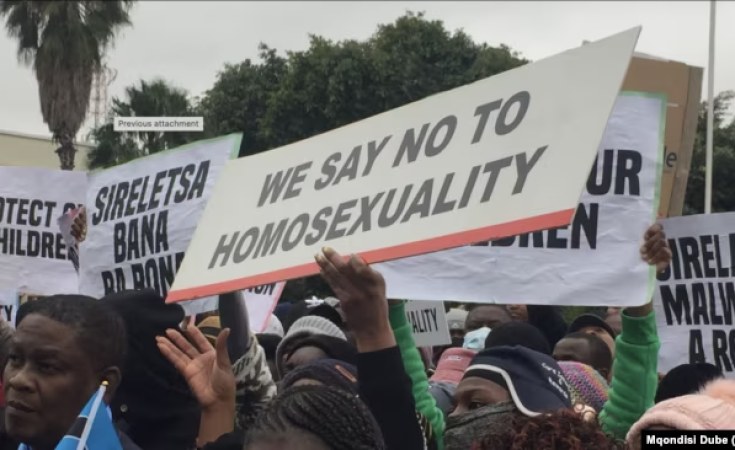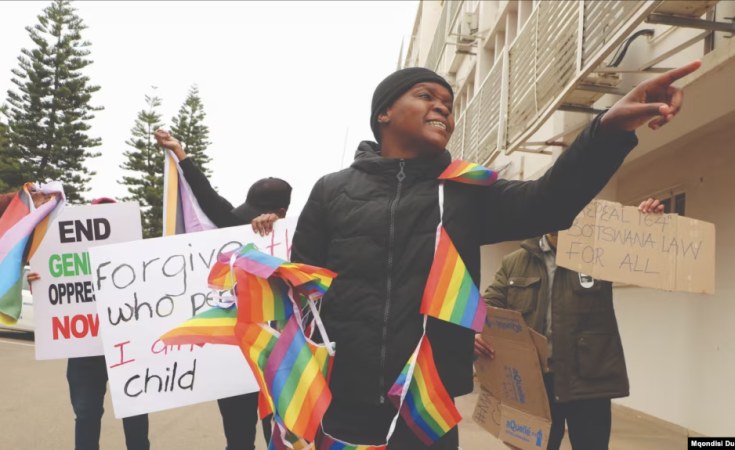Gaborone, Botswana — Tensions are rising in Botswana between the LGBTQ and Christian communities after members of the evangelical church community organized a march Saturday against a bill that could decriminalize same-sex relations.
A 2019 High Court ruling supported LGBTQ rights in Botswana, sparking a backlash by conservative groups.
The ongoing tensions come ahead of a National Assembly debate that is expected to begin this week on the controversial bill.
But members of the LGBTQ community are not pleased with efforts by religious leaders to influence legislators.
Thato Moruti is the chief executive of the group Lesbians, Gays and Bisexuals of Botswana, or LEGABIBO.
"I believe that the church might be starting a very dangerous trend by manipulating the legislators and the courts," said Moruti. "It is important that we understand that the church's move may be causing some sort of destabilization of democracy in the country because they are trying to push this Christian fundamentalism on Batswana."
Moruti said that there is a need to find common ground instead of confrontation between the church and the LGBTQ community.
"It is important that we push for non-combative approaches especially with all organizations and institutions," said Moruti. "This, I believe, will allow for trust with stakeholders and also foster progress on common justice goals. It is also important to focus on issues of prevention and not redress. It is very important that we seek to prevent human rights abuses before they occur."

'Action will open floodgates of immorality"
Handing a petition to parliament during the weekend protest, Evangelical Fellowship of Botswana chairperson Pulafela Siele urged legislators to vote against the measure.
"The EFB believes that if parliament is to act as required by the bill, such an action will open floodgates of immorality and abomination in the nation such as same-sex marriage, changes of school curriculum to teach our children such practices," said Siele.
Botswana's High Court ruled in 2019 that laws criminalizing consensual same-sex relations were unconstitutional. Tshiamo Rantao, the lawyer who represented the LGBTQ community in the 2019 case, said parliament has no mandate to debate the bill, but instead must respect the judgement.
But legislator Wynter Mmolotsi, who received the petition on behalf of the National Assembly, told VOA it is now up to parliament to decide.
"The laws that we make are for the good governance of the republic and therefore I do not think the court can tell parliament what to do," said Mmolotsi. "What parliament can do is to make laws that are guided by the values of the country, the values of the people. If parliament wants to agree with the court, they can make the law to align, and if they want to disagree with the court, they are also free to come up with a law that will reflect the values of the nation."
There has been a pushback against gay rights in some African countries, with protests held in Malawi last week, while Uganda has passed stiffer anti-LGBTQ laws.


